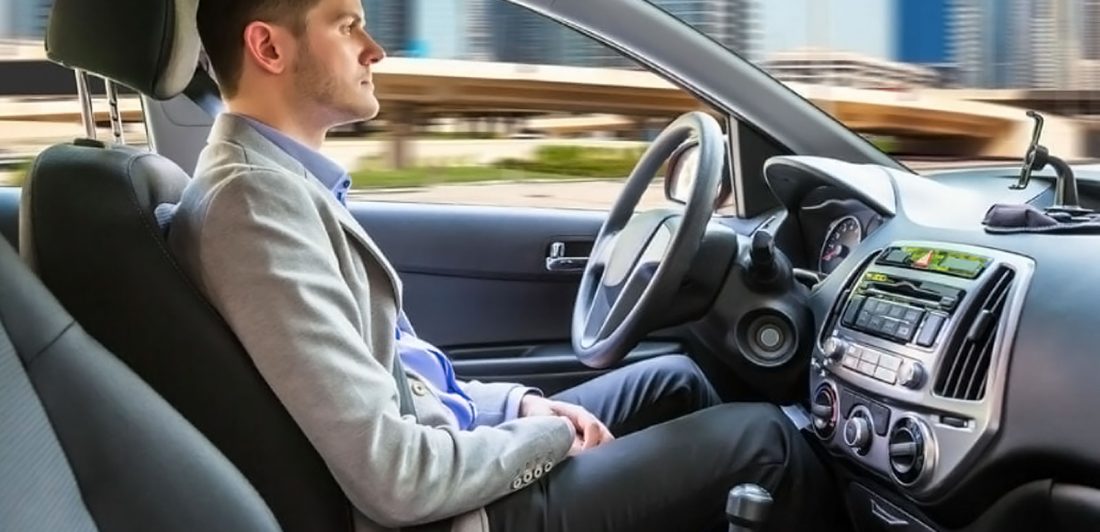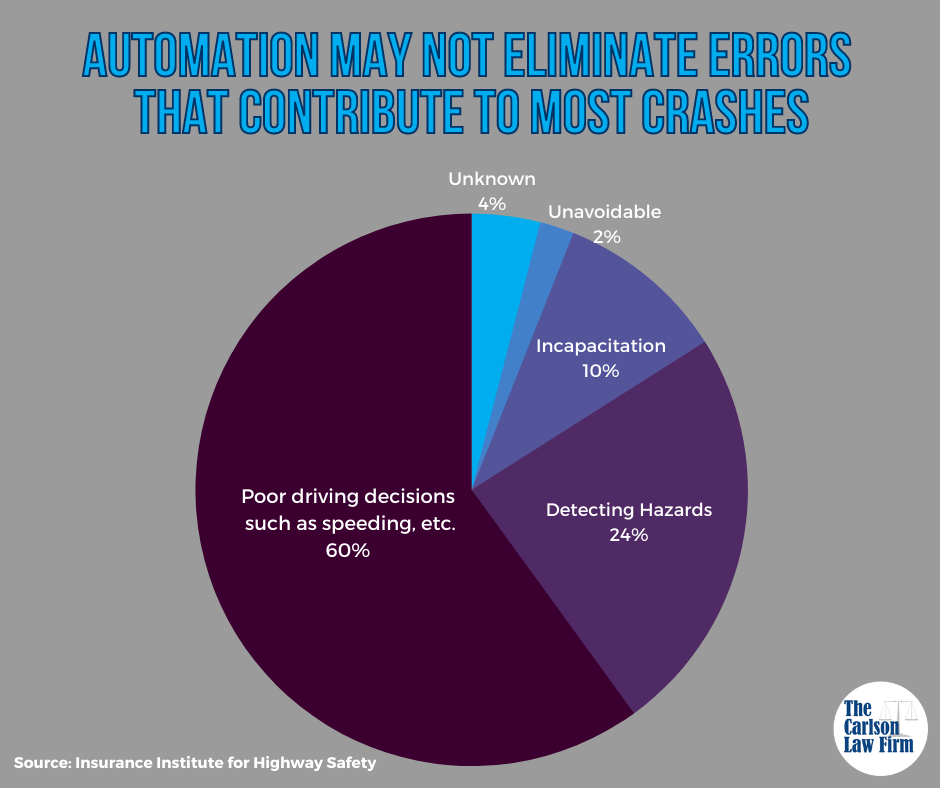The promise of more time is part of the allure of driverless cars. Although some people enjoy driving, most people don’t enjoy sitting in traffic nor do they want to spend a significant amount of time focusing on driving when they could be reading for fun, crafting a work email or napping. On average, Americans spend about 500 days of their lives commuting. However, if fully autonomous cars become a reality, drivers will no longer have to focus on the road. Instead, research shows they will net about 52 minutes in spare time on their daily commute.
Even with the possibility of more time, the safety of driverless cars has been questioned since the introduction of the concept. However, it seems that some people cannot decide if human error or machine error is worse. Slate reports that driverless cars will possibly save 3,000 lives a year in America. Compared to the roughly 33,000 lives a year taken by human error, driverless cars may be the safer option.
How perfect do driverless cars need to be?
Because autonomous cars are heavy machines that will operate at high rates of speed, they will need to be nearly perfect. For example, venture capitalist and early Uber investor Bill Gurley believes that the cars will need to be at least 99.99 percent accurate for a near-perfect safety record for widespread acceptance.
“Humans will be much less tolerant of a machine causing death than human error causing death,” Gurley said. Gurley also believes that truly self-driving vehicles are more than 20 years away.
Even if these machines are near perfect, they will need to be able to handle unusual situations. Some of these situations include an oncoming ambulance, an officer directing traffic, or unique weather conditions.
University of Michigan professor Ryan Eustice, who is developing the algorithm’s maps for these vehicles, will acknowledge these problems.
“To really field this technology in all weather, all kinds of scenarios, I think the public’s been a little oversold to this point,” said Eustice. “There’s still a lot of really hard problems to work on.”
Will self-driving vehicles eliminate most crashes?
As we know, there are a lot of human mistakes made on the road daily. That’s one of the reasons why automation has been held up as a potential game-changer for safety. However, a study from the Insurance Institute for Highway Safety (IIHS) says self-driving vehicles might only prevent around a third of all crashes.
To better estimate how many crashes might occur if self-driving cars are designed to make the same decision about the risk that humans do, IIHS researchers examined more than 5,000 police-reported crashes from the National Motor Vehicle Crash Causation Survey. This collection of samples represents crashes across the U.S. in which at least one vehicle was towed away, and emergency medical services were needed at the scene.
The data was broken down into five categories of driver-related factors that contributed to the crashes:
- “Planning and deciding” includes errors such as following the vehicle in front of you too closely or driving too fast or too slow for the road conditions.
- “Execution and performance” includes errors of incorrect maneuvers or other mistakes when controlling the vehicle.
- “Sensing and perceiving”, includes errors such as driver distractions or failing to perceive hazards before it was too late.
- “Predicting” includes errors such as assuming a gap in traffic incorrectly or estimating how fast a vehicle is going.
- “Incapacitation”, includes impairments driving or falling asleep on the wheel.
The IIHS team reviewed the files and found that the remaining crashes were caused by mistakes that self-driving systems aren’t equipped to handle any better than human drivers, such as a vehicle failure like a blowout or broken axle.
Deaths related to driverless cars
Although the idea of driver assistance is to be helping to save lives and prevent injuries. However, in 2019 there were about 36,096 deaths reported that were linked to autonomous vehicles.
The first instance in which a self-driving car ran down a pedestrian was in March 2018. The Uber car backed out and struck the 49-year-old woman walking her bicycle across the street in Tempe, Arizona. This incident is a reminder that self-driving technology still has some way to go.
Some vehicles today have technology that helps drivers avoid drifting into adjacent lanes or making unsafe lane changes, or will warn drivers if there seems to be something in the way when backing up, or brakes that will automatically stop you if you happen to be too close.
Who is liable if I’m involved in a self-driving car accident?
Typically, if you are involved in an accident, it is easy to distinguish who is liable in the situation. However, when accidents involve self-driving vehicles, it gets tricky to determine who is responsible. Because an operating system and computer run these vehicles, these accidents have been focused on product liability.
However, it depends on how autonomous the car is. For example, if the vehicle is partially autonomous (still involves human control), the action that led to a collision would naturally be assigned to the driver. If the car is fully autonomous, the manufacturer, service center, and vehicle owner may share the blame.
- Manufacturer liability. This would be the case if the vehicle had a design flaw or bug in the software system. In addition, a manufacturer may be liable if a human driver could’ve prevented the collision and injuries.
- Service center liability. The center where the vehicle was serviced could be to blame.
- Owner liability. Negligence might fall on the owner if the owner failed to implement a software update from the manufacturer.
In addition to these scenarios, legislators will likely enact new laws to govern driverless cars and liability.
What forms of compensation can I get if I’m involved in a self-driving car accident?
Compensations you may be entitled to are:
- Property damage: reimbursement of property damage that your vehicle may have suffered due to the accident.
- Lost Income: If you have to take time off from work, you may be able to claim wages lost or even future lost wages if you suffer from permanent injuries.
- Medical expenses: If you were hit, you are entitled to seek medical costs, including doctor visits, medical care, surgeries, emergency room visits, and rehabilitation.
- Pain and suffering.
The Carlson Law Firm Can Help
The Carlson Law Firm attorneys are paying close attention to the development of autonomous cars. The laws around these types of collisions are confusing and may be challenging to navigate. When it comes to determining and proving liability in a car crash, The Carlson Law Firm is the team you want on your side. Our experienced personal injury attorneys can help you navigate the legal system after a car crash to get the compensation you deserve.






